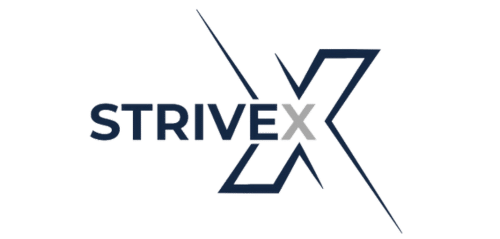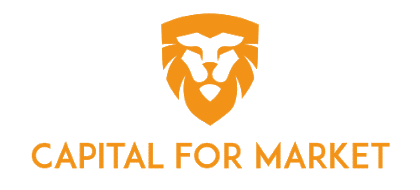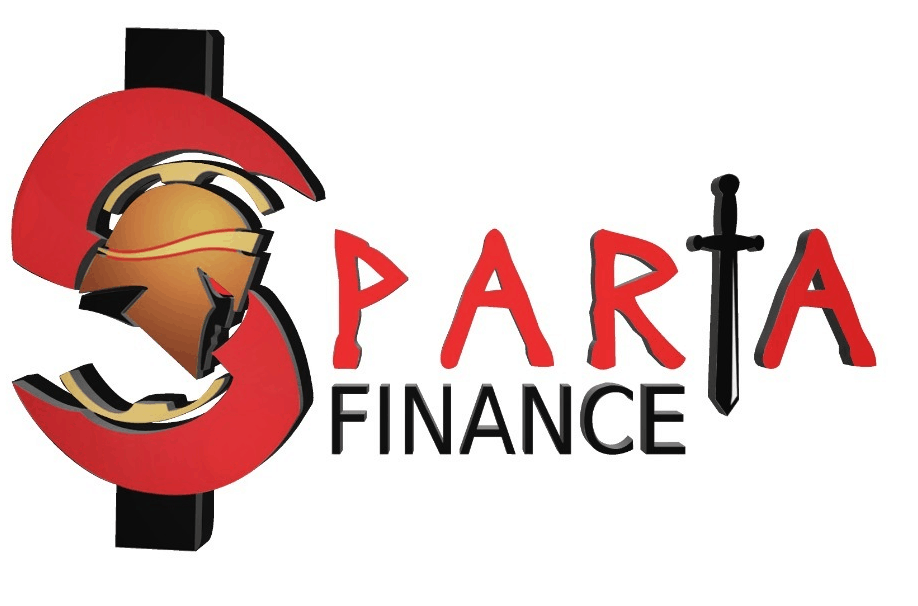Compare Lenders
$2,500 - Unlimited
Starting at 3.9% - 34.9%
3 - 240 Months
Discover Popular Financial Services
Quick Links
- Understanding Your Heavy Equipment Financing Needs
- Understanding the Different Types of Heavy Machinery Financing
- Financing Versus Leasing Industrial Equipment
- What Can You Finance With Heavy Machinery Financing?
- Applying for Heavy Machinery Financing
- Frequently Asked Questions About Industrial Equipment Financing
Understanding Your Heavy Equipment Financing Needs
Financing options come in many forms, and the broad range of possibilities may seem overwhelming. What's crucial when considering a heavy equipment loan is to determine your business needs, so you can understand which equipment financing solution meets them best. This is effectively step one of any equipment financing decision. Consider:
- The piece of equipment you need, and whether it needs to be new equipment or can be obtained second-hand
- The useful life of that equipment
- Whether you have a down payment and/or if there are minimum down payment requirements you must meet
- How the equipment will affect your operation or change revenue
- Whether the item can be resold at fair market value at a later date, if business operations change
- If it can be used for other purposes or has limited usage
- Whether its cost can be offset in any way
All of these elements give you a starting place for comparing the funding options open to your business for its new equipment purchase.
Understanding the Different Types of Heavy Machinery Financing
Step two in your equipment financing decision is to consider the various heavy machinery financing solutions available in Canada, and determine which best suits your situation. The main options can be distinguished as follows:
Collateral Based Financing
This option is great for those with low credit scores or starting a new venture; it involves a large down payment or form of collateral in order to secure a loan, as new companies cannot prove revenue.
Cash Flow Based Financing
If your business has lower credit but can prove steady cash flow, cash flow based financing may work for you. It's ideal for existing businesses looking to upgrade their equipment base or invest in growth.
Credit Based Financing
This is a great equipment financing option if your business has a positive financial history, with demonstrable revenue, existing assets, or minimal debt. However it is not relevant for new businesses or those with poor credit.
Pros & Cons of Financing
Pros
- You own the right equipment and are not limited in how you can use it
- You can sell it if needed, as with all other business assets
- Tax deductions may be available
- Equipment can be used as collateral
Cons
- Equipment may become outdated before you’ve finished paying it off
- Can be harder to obtain a loan than a lease if you have bad credit or a past bankruptcy
- Upfront money may be required
- You must pay all repair costs
Financing Versus Leasing Industrial Equipment
Not every business will want to go down the heavy equipment loan route. It's worth considering whether your business might be better off leasing. The main difference when leasing is that you’re effectively only ‘borrowing’ it. Your monthly lease payments allow you to make use of the equipment for the period of your lease only, and when the lease expires you must return it (or get a new lease). An equipment financing plan, on the other hand, means you own the equipment in full, and are simply paying it off gradually.
Choosing between leasing and traditional financing may not be obvious for your business, and can come down to what lease terms you can obtain versus loan terms. How long you want to be able to use the equipment for, what you can afford to pay for it monthly in loan payments or lease payments, and whether you can get flexible terms make the difference in this decision.
Many are wary of leases simply because it means they don't own their tools, but remember that some items of machinery are consumable, and a lease can be a smart way to access the item without having to take on the burden of maintaining it or its full cost. And different industries have different standards regarding leasing and what can be accessed via leasing.
Pros & Cons of Leasing
Pros
- Allows more business flexibility
- Lets you upgrade equipment more easily or establish fast growth
- No down payments
- Still obtain the new revenue from the equipment
Cons
- You don’t own the equipment and cannot resell
- Less chance of tax breaks
- Have to keep the equipment until the end of the lease
What Can You Finance With Heavy Machinery Financing?
Whether you need construction equipment, agricultural equipment, manufacturing equipment, or an item of heavy machinery for another type of business entirely, heavy machinery financing options are available. Almost any type of heavy machinery is eligible for a loan, and many are also accessible via leasing. This means that whatever new equipment you need, whatever your working capital is, wherever you are in Canada, you can take advantage of the many benefits the right equipment can provide.
Applying for Heavy Machinery Financing
Applying for equipment financing for your business in Canada is much like applying for loans in other walks of life, whether personal or business related. It can be tackled step-by-step:
Step One: Assess Your Needs
Companies across industries may have very different needs and expectations, both from their new equipment and from their loans. Therefore a sensible first step in any successful loans journey is to establish your base line. What do you need? When do you need it? Why do you need it?
This last question may not seem relevant to a potential lender, but if the item is needed for growth, to increase revenue, or to bring other expected benefits that cannot be immediately perceived in existing business documentation, it must be noted, along with the exact nature of those expected benefits. This information will also help your business decide if leasing is a better route.
Step Two: Gather Your Paperwork
Before your business can apply for any loan in Canada, you need to make sure you have all of your supporting paperwork. In general this should include information on:
- Existing debt
- Existing contract(s)
- Business assets
- Revenue
- Personal information relating to business owners/operators
Step Three: Applying
This step should be easy once you have all of your documentation in hand, it's simply a matter of filling in the equipment financing application form and submitting it along with your business documents!
Step Four: Approval and Fund Release
Once an application has been received, financing providers will assess it, and upon approval send a contract for your business to sign, which then marks the start of your new debt obligation. They will typically release the money requested directly to your business.
Frequently Asked Questions About Industrial Equipment Financing in Canada
What is heavy equipment financing?
Heavy equipment financing is simply a term used to describe the various financing options available to businesses who want to invest in new equipment, but needing financial assistance to do so.
What's a typical interest rate for industrial equipment loans?
Interest rates on equipment loans vary depending on circumstances, including the business in question, its working capital, liabilities, credit rating, as well as the equipment, its price, useful life, resale value, expected usage, down payments considerations, and so on. As such it can be tough to estimate what interest rate any given business will qualify for on the fair market. Rates can start as low as 2.5% and span all the way to 20% or more.
What's the difference between asset finance and equipment finance?
None! These are synonymous terms that simply mean that the loan is secured against a piece of equipment, and as such if the loan is defaulted on, the lender can come on site to seize the equipment in lieu of payment.
What credit score is needed for equipment financing?
If you are seeking financing from one of the banks, you'll typically need a credit score of 600 or higher. However, there are funding options for those with a score lower than this, via online lenders and alternative lenders. And heavy equipment leasing can be a great alternative if credit is an issue, as leases do not rely as heavily on credit, and a lease can be more affordable (as poor credit will mean higher interest rates on loans).
Which is better: financing equipment or leasing equipment?
This depends on a range of business circumstances, as well as the equipment itself. Leasing can be a more affordable route to access to a key piece of industry technology, without the need for a hit to the company's balance sheet. But to truly compare leases and financing options solutions, you need to take into account lease terms, loan terms, and the expected benefit of either route.
What's a sale leaseback?
A sale leaseback is a form of lease that occurs when a company sells an asset, and then immediately leases it back. This can be helpful in circumstances when access to the item is crucial, but the company holding it needs the short-term funds that comes from selling it.
Can I get purchase financing from my bank?
Whether your bank will lend to you depends on your company profile, its history, cash flow, credit score, and so on. A bank will have strict criteria that must be met before they offer financing, and each bank may be different. Other lenders, like online lenders or alternative lenders, often have more flexible criteria, and are more likely to be able to offer customized financing solutions. Choosing your lender carefully can make a big difference in your overall finance journey, so don't just assume your bank will be the best option for equipment financing.
What is the average term length for a heavy machinery loan or lease?
The average term of financing or a lease depends on a few factors, including the machinery in question, the amount it costs, and its expected lifespan. Typically, one to seven years is standard for equipment financing.
How can I get approved for heavy equipment financing with bad credit?
Bad credit need not stop your business from accessing the best tools; an alternative lender is far more likely to provide loan approvals than the major banks, even in situations where there has been a past bankruptcy. And working via an alternative lender also gives you access to the best rates in these circumstances. While there may be some extra conditions to be met (such as documenting company debt, assets, profiles of existing customers, expected revenue, and so on), as long as you research lenders before starting the application process to be sure you can meet their conditions, you should be fine. Not all lenders work with bad credit businesses, but many do!
Explore more
Similar products
Why Choose Smarter Loans?

Access to Over 50 Lenders in One Place

Transparency in Rates & Terms

100% Free to Use

Apply Once & Get Multiple Offers

Save Time & Money

Expert Tips and Advice




















